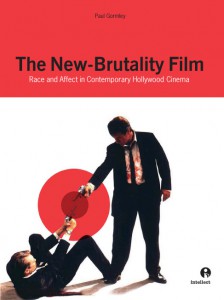New Brutality Film
Race and Affect in Contemporary Hollywood Cinema
de Paul Gormley


Moyenne des votes : ![]()
| 0 | vote | |
| 0 | vote | |
| 0 | vote | |
| 0 | vote |
Votre vote : -
Description de l'ouvrage:
The 1990s saw the emergence of a new kind of American cinema, which this book calls the “new-brutality film.” Violence and race have been at the heart of Hollywood cinema since its birth, but the new-brutality film was the first kind of popular American cinema to begin making this relationship explicit. The rise of this cinema coincided with the rebirth of a long-neglected strand of film theory, which seeks to unravel the complex relations of affect between the screen and the viewer.
This book analyses and connects both of these developments, arguing that films like Falling Down, Reservoir Dogs, Se7en, and Strange Days sought to reanimate the affective impact of white Hollywood cinema by miming the power of African-American and particularly hip-hop culture. The book uses several films as case-studies to chart these developments:
• Falling Down both appropriates of the political black rage of the ‘hood film and is a transition point between the white postmodern blockbuster and the new-brutality film.
• Gangsta films like Boyz N the Hood and Menace II Society provided the inspiration for much of the new-brutality film’s mimesis of African-American culture
• The films of Quentin Tarantino (including Reservoir Dogs and Pulp Fiction) are new-brutality films that attempt to reanimate the affective power of Hollywood cinema.
• Se7en, Strange Days, Fight Club,and The Matrix trilogy signify both the development and the demise of the new-brutality film.
This book charts and analyses an important period of Hollywood cinema as well as engaging with key contemporary thinkers (Deleuze, Jameson, Zizek and Benjamin) in a strikingly innovative fashion. The work will appeal to dedicated film scholars, critical theorists and readers with a general interest in film.
> Sur un thème proche :
The Body Onscreen in the Digital Age (2021)
Essays on Voyeurism, Violence and Power
Dir. Susan Flynn
Sujet : Sociology
Tattoos, Desire and Violence (2005)
Marks of Resistance in Literature, Film and Television
de Karin Beeler
Sujet : Sociology
Bound and Gagged (1998)
Pornography and the Politics of Fantasy in America
de Laura Kipnis
Sujet : Sociology